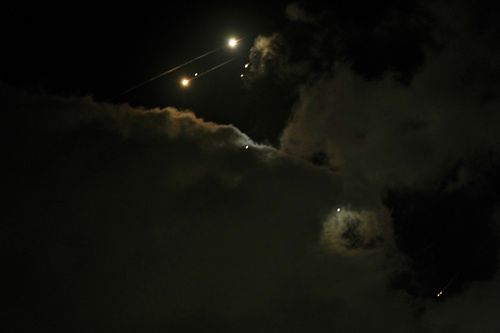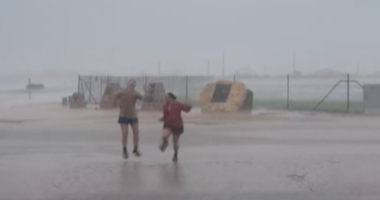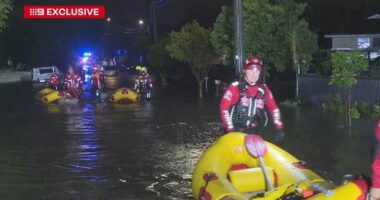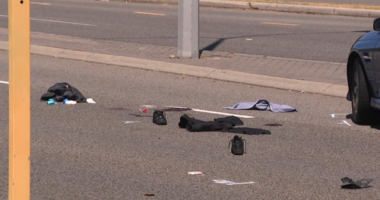Share this @internewscast.com
Iran fired missiles at Israel for the second consecutive night, as Israel continued strikes within Tehran. This comes following a significant Israeli assault on Iranian nuclear and military sites, initiated due to Iran’s accelerating nuclear program.
The latest barrage of Iranian missiles was confirmed by both Israel’s military and Iran’s state media, as explosions were reported in parts of Israel like Tel Aviv, just before midnight. This occurred while Israel’s security cabinet was in session.
Fire officials reported a collapsed building in the north. Within the hour, Israel’s military said people could leave shelters.

‘More than a few weeks’ to repair nuclear facilities
Israel targeted the primary nuclear enrichment site in Natanz. Satellite images reviewed by the Associated Press reveal significant devastation. Photos taken on Saturday by Planet Labs PBC display numerous structures either damaged or obliterated, with the impacted buildings identified by experts as crucial to powering the facility.
UN nuclear chief Rafael Grossi told the Security Council that the above-ground section of the Natanz facility was destroyed. The main centrifuge facility underground did not appear to have been hit, but the loss of power could have damaged infrastructure there, he said.
Israel said it also struck a nuclear research facility in Isfahan, including “infrastructure for enriched uranium conversion,” and said it destroyed dozens of radar installations and surface-to-air missile launchers in western Iran. Iran confirmed the strike at Isfahan.
The International Atomic Energy Agency said four “critical buildings” at the Isfahan site were damaged, including its uranium conversion facility. “As in Natanz, no increase in off-site radiation expected,” it added.
An Israeli military official, speaking on condition of anonymity in line with official procedures, said that according to the army’s initial assessment “it will take much more than a few weeks” for Iran to repair the damage to the Natanz and Isfahan nuclear sites. The official said the army had “concrete intelligence that production in Isfahan was for military purposes.”
Israel denied it had struck the nuclear enrichment facility in Fordo, about 100km south-east of Tehran, after an Iranian news outlet close to the government reported the sound of explosions nearby.
Netanyahu said the attack had been months in the making and was planned for April before being postponed.
Among those killed were three of Iran’s top military leaders: one who oversaw the entire armed forces, General Mohammad Bagheri; one who led the paramilitary Revolutionary Guard, General Hossein Salami; and the head of the Guard’s aerospace division, which oversees its arsenal of ballistic missile program, General Amir Ali Hajizadeh.
On Saturday, Khamenei named a new leader for the Revolutionary Guard’s aerospace division: General Majid Mousavi.












